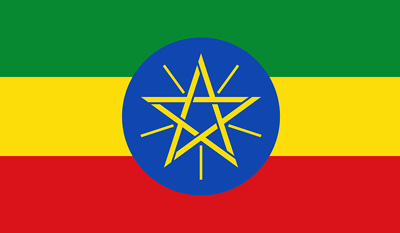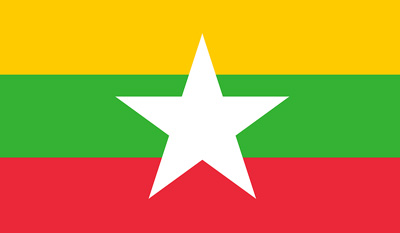Day 22
Ethiopia
Praise Points
The survival and continuity of a living, ancient Christian tradition that has preserved Scripture across centuries. — “How lovely are your dwelling places, LORD Almighty!” (Psalm 84:1).
The 2018 rapprochement that formally reopened a path to peace with Eritrea after two decades of hostility — a diplomatic opening that, when it held, reduced a major regional flashpoint. — “Blessed are the peacemakers, for they will be called children of God.” (Luke 6:35-36 is in Luke; for peace language: Romans 12:18 — “If it is possible, as far as it depends on you, live at peace with everyone.”)
The resilience of local and international humanitarian and Church networks that have provided care during crises (displacement, food, and medical relief), keeping communities alive through the Tigray conflict. — “Share with the Lord’s people who are in need. Practice hospitality.” (Romans 12:13).
Prayer Points
The Tigray conflict and associated atrocities, displacement, and long-term trauma — which undermine social trust and the Church’s ability to minister safely. — “Learn to do right; seek justice, correct the oppressor; defend the fatherless, plead for the widow.” (Isaiah 1:17).
Renewed interstate and border tensions (Eritrea–Ethiopia) that can re-militarize society and divert resources from human flourishing. — “Nation will not take up sword against nation, nor will they train for war anymore.” (Isaiah 2:4).
Media restrictions, shrinking civic space, and censorship that choke public truth-telling, accountability, and healthy formation of youth — weakening the Church’s prophetic role. — “For God did not give us a spirit of timidity, but a spirit of power, of love and of self-discipline.” (2 Timothy 1:7) — Christians are called to love without fear.
A Call to Salvation
Prioritize discipleship and youth fellowship. Invest in age-appropriate trauma-informed pastoral care, and safe youth spaces that teach Christian doctrine, critical thinking, and vocational hope — so Christianity isn’t just cultural memory but is lived with conviction. — “But grow in the grace and knowledge of our Lord and Savior Jesus Christ.” (2 Peter 3:18).
Stand for justice and pursue reconciliation publicly. Churches should lead nonpartisan truth-telling, accompany victims, promote accountability, and model inter-ethnic reconciliation rather than taking partisan positions that deepen divides. — “Be completely humble and gentle; be patient, bearing with one another in love.” (Ephesians 4:2).
Defend free civic space and support independent information channels. Advocate for protections for journalists and open communication (so pastors, parents, and youth can access facts, resources, and theological formation) and support community media and church-run schools. This action preserves the conditions for faithful public witness. — “Pray for the peace of the city… for there will be peace within your walls.” (Psalm 122:6–7).
Ethiopia is an ancient land of high plateaus, diverse peoples, and deep historical roots: a civilization centered on Aksum that traded across the Red Sea and gave the world rock-hewn Churches, Geʽez literature, and rich oral traditions. Ethiopian culture blends Orthodox Christian fasts and liturgies, Islamic traditions, and many ethnic customs in music, food, and passage; the Ethiopian Orthodox Church in particular has shaped language, art, and national identity for over a millennium. Christianity arrived in the Aksumite kingdom in the fourth century through the influence of missionaries such as Frumentius (later consecrated bishop by the Patriarch of Alexandria), and by royal conversion under King Ezana — foundations that made Ethiopia one of the world’s earliest Christian kingdoms.
Contemporary Ethiopian Christians now live amid difficult pressures: repeated armed conflicts (notably the Tigray war and its humanitarian toll), a fraught border history with Eritrea, deepening ethnic and political polarization, and restrictions on media and civic space that make public witness and inter-communal reconciliation harder. Young Christians — especially teenagers — face displacement, interruption of schooling, social media influences that promote secular or sectarian attitudes, economic hardship, and a weakened trust between Churches and state institutions; these stresses make it easier for Christian identity to fray.
Internal causes of disunity include denominational fragmentation (Orthodox, Protestant, Catholic, and newer Pentecostal movements), the overlay of ethnicity and politics on religious life, historical wounds (including periods of forced conversions and foreign intervention), and mutual suspicion when Churches take partisan positions rather than being seen as national reconcilers.
To prevent the gradual erosion of Christianity’s witness in Ethiopia, biblical changes needed include renewed commitment to sacrificial peacemaking and truth-telling (over partisan advantage), and youth discipleship that addresses modern pressures (media, migration, trauma), and institutional humility — Churches prioritizing service, justice, and reconciliation ahead of power or patronage.
Day 22
Myanmar
Praise Points
Abba Father, we thank You for the steadfast faith of the Karen, Kachin, and Chin believers who continue to stand firm in the Gospel despite violence and displacement. 2 Thessalonians 3:3 – “But the Lord is faithful, and he will strengthen you and protect you from the evil one.”
Lord Jesus, we praise You that persecution has not silenced Your Church in Myanmar, but instead refined it through fire and drawn many closer to Christ. 1 Peter 1:7 – “These have come so that the proven genuineness of your faith—of greater worth than gold—may result in praise, glory and honor when Jesus Christ is revealed.”
Prayer Points
Lord God, comfort the families of those who have disappeared for their faith. May the truth come to light, and may the courage of these believers inspire others to stand firm. Hebrews 13:3 – “Continue to remember those in prison as if you were together with them in prison.”
Heavenly Father, heal divisions among Christians in Myanmar. Replace fear with boldness and unite the Church in love and truth. Philippians 1:27 – “Stand firm in the one Spirit, striving together as one for the faith of the Gospel.”
A Call to Salvation
Holy Spirit, fill Myanmar’s young believers with courage and vision to lead future generations in truth and love, even in the face of persecution. 2 Timothy 2:3 – “Join with me in suffering, like a good soldier of Christ Jesus.”
Lord Father, renew the hearts of Christian families across Myanmar. Let parents teach faith diligently, and children grow in reverence and hope. Joshua 24:15 – “But as for me and my household, we will serve the Lord.”
God of mercy, bring peace to Myanmar. Let Your Church be a light of forgiveness, compassion, and unity amid division and despair. Ephesians 4:32 – “Be kind and compassionate to one another, forgiving each other, just as in Christ God forgave you.”
Myanmar is a Southeast Asian country. During colonial times, Christianity was introduced primarily through the efforts of Adoniram Judson, the first American Baptist missionary, who arrived in 1813. Judson translated the Bible into Burmese, established churches. He laid the foundation for the growth of Christianity, especially among the Karen, Kachin, Chin, and Lisu ethnic groups. His work remains one of the most influential missionary efforts in Asia’s history.
Today, Myanmar’s Christian teenagers live amid one of the most hostile environments for believers in Asia. The ongoing civil war and ethnic cleansing, particularly in Chin and Kachin States, has led to bombings of Christian villages, the displacement of entire communities, and state-sponsored disappearances of pastors and missionaries. Converts from Buddhism or animism face social rejection, family exclusion, and legal harassment. Churches often operate under surveillance, and many house churches are banned or destroyed. Despite this, the Church in Myanmar continues to grow quietly through faith, worship, and the perseverance of its youth. Yet, internal divisions among denominations and fear-driven silence threaten the long-term endurance of the faith.
For Myanmar’s Christians to prevent the decline of faith among future generations, they must embrace unity across ethnic and denominational lines (John 17:21), deepen forgiveness and compassion amid persecution (Romans 12:21), and rekindle discipleship in families and communities (Deuteronomy 6:6–7). The Church must return to the foundations of humility, holiness, and hope, trusting that even in the ashes of war, God can rebuild His Kingdom in Myanmar.




